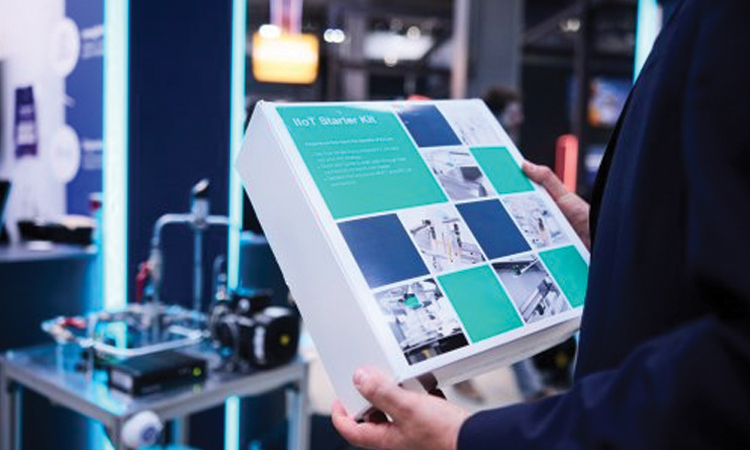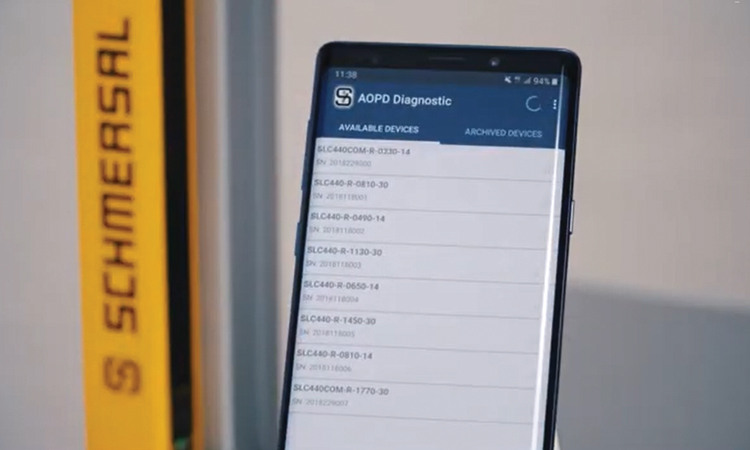The Industrial Internet of Things (IIoT) relies on comprehensive sensor and process…

Green growth is the future of manufacturing
As a developing nation, India is making huge strides toward the development of the manufacturing sector realizing its potential to contribute toward country’s economic growth and amount of employment it can generate. In India, manufacturing is emerging as one of the high growth sectors due to increasing number of educated population & skilled labor. There is potential for the sector to account for 25-30 per cent of the country’s GDP and create up to 90 million domestic jobs by 2025. While growth of manufacturing is necessary for the economic development, it is also essential to look into the challenges that emerge with it. With growing number of industries, country’s environmental concerns are also increasing and need to be mitigated. The government is also supporting growth of the manufacturing industry by conducting various initiatives but at the same time pushing manufactures to develop sustainable framework.
India’s manufacturing sector is in a continual state of transformation and in the era of sustainable development, manufacturers are embracing the new paradigm of green growth to create environmentally conscious industrial operations for the future. In all these years, businesses have adopted a quantity-oriented and fossil fuel-driven growth model which has largely contributed toward their economic endeavors but not addressing adequately the ecological considerations. Hence, being compelled to develop a sustainable growth framework.
Companies have observed that only economic pursuit is no longer sufficient in this age of sustainable development as it has become essential for them to attain the business objectives while meeting the needs of environmental safety. Businesses are going through a phase of evolution which is considered as significant as industrial revolution where the emphasis is more on ‘Green manufacturing processes’. Companies are increasingly convinced that it’s in their interest to take care of the environment and invest in green practices. Hence, they are purposefully adopting sustainable business processes.
In green manufacturing, production processes are aimed to reduce pollution; products are made from sustainable materials, while waste is reduced through re-manufacturing, reuse, and recycling. Besides its benefits to the environment, it can reduce the production cost of businesses enabling them to potentially increase revenue.
Following are some of the methods that companies are adopting to incorporate sustainable processes in business operations.
Conducting an energy audit
Conducting an audit to incorporate productive and energy efficient practices in manufacturing can dramatically reduce the production cost in a shorter time span and create a positive impact on the environment. Companies are conducting energy audits to discover new insights about the utilization of energy in the production to understand the area where improvement can be done to save energy and achieve production efficiency. With a focus on achieving sustainable development, companies are proactively improving their utilization of energy by making every possible change. From utilizing programmable thermostats that reduce energy waste to replacing incandescent bulbs with LED fixture and star ratings of electrical gadgets etc., , companies are taking every step ensuring optimal use of energy resources to increase energy efficiency.
Incorporating sustainable manufacturing processes.
In order to tackle the unfavorable climate change, companies are finding new ways to incorporate sustainable manufacturing processes in their business operations. Companies are aiming to manufacture products that are ecologically sound and use production method which causes a less negative impact on the environment while ensuring the optimum use of natural resources. Across the globe, manufacturers from various sectors are innovating alternatives to burning fossil fuel to reduce the carbon emission. World’s leading companies have started incorporating state of the art technologies like renewable fuel based Co-generation plant and renewable sources like solar thermal systems to make their manufacturing plants fully energy sufficient and equipped with self-sustaining facilities.
Many Organizations are also implementing alternatives for power generation in order to increase production and reduce the energy usage. These alternatives are significantly contributing toward slowing the impacts of climate change caused by manufacturing processes.
Also, various industries are building environmentally conscious strategies to dispose of solid, special, or hazardous wastes generated during the manufacturing processes. With a vision of maximizing operational material value and minimizing the overall environmental footprint, organizations are conducting zero waste initiatives which are aimed towards reducing and recycling of production residuals to achieve environmental compliance.
In FMCG sector, producers and manufacturers of the consumer goods are developing and implementing solutions that optimize raw materials at their fullest potential to avoid wastage. Such organizations are reaching its zero waste goals by developing a safe, economical and compliant program that facilitates proper disposal or recycling of the product residue.
To turn the vision of sustainable future into reality, global chemical companies have also adopted an eco-friendly approach. By incorporating processes like Waste Water Treatment and Zero Liquid Discharge, many companies have raised the bar of sustainable development in the chemical industry. The wastewater treatment process is utilized to recycle the wastewater discharges from the production processes with the help of technologies like reverse osmosis that purifies water to a point where it is completely recylcable. Also, zero liquid discharge process further ensures that virtually no liquid is discharged from the site. The initiative to treat the wastewater and achieving zero water discharge not only prevents contamination of conventional sources of water but also facilitates the minimization of water footprint.
Producing and selling eco-friendly products
Taking a step further into green manufacturing, many companies are delivering products which boast of excellent green credentials. Previously, products consisted of non-biodegradable and toxic chemicals. For example washing detergents contained dispersing and complexing agents which persisted in the environment for a long time and sometimes leached into groundwater causing damage to the natural habitat. But now, chemical companies have taken initiatives to develop eco-friendly agents which can be used in washing powder or detergents making them biodegradable and much safer for the environment. Companies have started taking environmental responsibility more seriously as they are purposefully manufacturing products which are safe for the ecology.
While green manufacturing fundamentally facilitates environment-friendly operations, it can be troublesome for companies as it costs them a significant amount of money. In the transition phase to green manufacturing, companies have to locate funding sources to finance the transformation and many companies find it difficult to do that. Additionally, to ensure the smooth functioning of newly installed technologies, businesses have to invest in educating the employees on how to work in the new green manufacturing environment. Surviving through the transition is a tough phase for businesses but it is a worthwhile business pursuit as it will benefit the organization and decide the long term survival . The future of manufacturing is all green. As these green business opportunities continue to push sustainability up the manufacturing agenda, there is a need for the industry to collectively become more outward-looking and forward-thinking, so that the manufacturing plant of the future is one that puts a low-carbon, resource-efficient economy first.
ENGINEERING REVIEW provides cognitive exchange of information on the manufacturing sector, which will facilitate you keep updated on a real time basis.
Please follow our magazine page and also join our LinkedIn Group- exclusive group created for manufacturing professionals community
Join us on LinkedIn Group : https://www.linkedin.com/groups/10477764/
Follow us on LinkedIn : https://www.linkedin.com/company/engineering-review/









